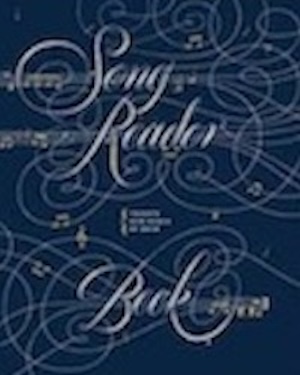
No one had ever heard of Beck David Hansen. Now known monomously as “Beck”, he was at the time a completely unknown music artist playing in small coffee houses. And yet, somehow his very first recorded song “Loser” was inexplicable success. It was a strange song with incoherent lyrics. One would think “Loser” was worthy of the “Most Stupid Song Award.” And yet “Loser” skyrocketed to #1 on Billboard’s Alternative Airplay. Why? Because the song was basically a musical blank canvas on which listeners could paint their own meaning to Beck’s words. They made Beck’s song their own and “Loser” belonged to them.
None of this was Beck’s intent. “Loser” took on a multi-dimensional life of its own – a life that was created by everyone else but him. And it gave an idea for an album that would go on to floor the music world. the album was called “Song Reader” and contained 20 songs of just sheet music. Eyup, an album with no music. Just sheets of Beck’s lyrics. People could compose their own music to accompany his lyrics, and share it on social media.
Within just the first month of Song Reader’s release, 32,000 people generated self-recorded videos of themselves singing and playing their renditions of Beck’s sheet music to share on YouTube. What’s remarkable about the idea behind Song Reader isn’t about sheet music. It was about releasing his work into wild giving people unfettered creative free rein to interpret Song Reader’s sheet music any way in which they were inspired.
In a story on NPR Beck said “It’s kind of [like] sending a message in a bottle. You don’t really get a lot of feedback. This is a way of sending that song out, and you just get literally thousands of bottles sent back to you.”

After Song Reader’s release, Beck just sat back and watched the magic unfold. Nearly 2 years went by and people were still recording, posting, and sharing their compositions. In addition, they were also listening to and being inspired by the musical versions of others. Not only that, famous artists like Norah Jones, Jeff Tweedy, and Jack Black got onstage and played their own takes on Beck’s sheet music. What’s more, the Portland Cello Project recorded their own version of all 20 sheet music songs called Portland Cello Project Play Beck Hansen’s Song Reader.
By letting people take over his songs, Beck’s sheet music is unlikely to become outdated. Instead, his music stays relevant because it continues to evolve and grow along with the culture.
The same goes for brands.
Take a page out of Beck Hansen’s Sheet Music Playbook. Give brand fans the freedom to interpret your brand according to the way the see and experience it. Let them own it. Flip the conventional thinking of “Follow me” to follow them.
Let brand fans lead the way and who knows? You might discover new expansive territory or a spin-off into a new unknown opportunity of your own.
